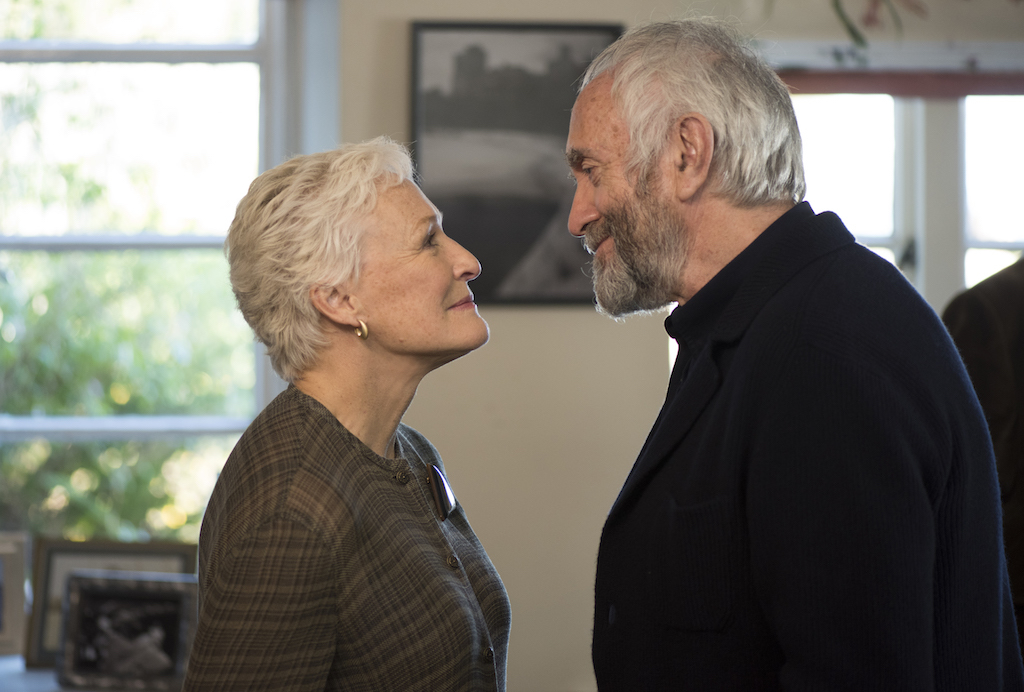
Sometimes we can be grateful for a film simply because it gives two great actors a chance to sink their teeth into some seriously meaty material. Such is the case with The Wife, directed by Björn Runge and based on the Meg Wolitzer novel of the same name.
The actors in this case are Glenn Close, whose penetrating stare and patrician beauty have rarely been used to better effect, and Jonathan Pryce, wonderfully illustrating a certain kind of preening and self-serving male narcissism.
As the film begins, the aging novelist Joe Castleman (Pryce) is tossing and turning, hoping for a call from the Nobel Prize committee. Tellingly, he initiates sex with his wife, Joan (Close), not because she’s interested—she’s sleeping—but to distract his jangling nerves. Generously, albeit grudgingly—Joan’s default state, in many ways—she obliges.
The phone rings. It’s Sweden. Castleman asks if his wife can get on the other line and we watch something peculiar cross over her face—resentment? anger?— as she hears the news that her husband is receiving the Nobel Prize for Literature. As for Castleman, he can’t hide his elation, encouraging his wife to jump up and down on the bed with him, like a giddy child.
Castleman, who makes a big show in public of feigning modesty and abashment, assumes that Joan will be as excited about this honor as he is, but she’s clearly not. She’s cautious, reticent. At a hastily assembled cocktail party/press conference the next day he lavishes his wife with praise, calling her his muse, saying he’d be nowhere without her. Again, she looks more disgusted than delighted.
Later, she hisses: “I don’t want to be thought of as the long-suffering wife.”
The couple makes their way to Sweden, now accompanied by their sad sack adult son (Max Irons), an aspiring writer who seeks approbation from his father that he never receives (instead, Joe refers to his son’s short stories as “good starts.”)
Also lurking somewhat ominously around the edges is a writer (Christian Slater) who has been commissioned to pen a tell-all biography on Castleman. Certainly, Castleman’s many and notorious affairs will be part of the narrative, but what else?
The film gives us clues by way of flashbacks to when Joe and Joan met at Smith College in the 1960s. The younger Joe, played by Harry Lloyd (who, distractingly, looks nothing like Pryce), was a creative writing professor; Joan (Annie Starke, better cast) was his talented and smitten pupil. So is that it? Did Joan sacrifice her dreams as a writer to support his? Or is there more here than meets the eye?
Among its other virtues, The Wife gives you pretty good idea of what it’s like to receive a Nobel Prize—lots of cocktail parties, photo ops, and bowing, basically. But it’s essentially a chamber piece about a marriage—and family—filled with secrets, lies, and resentments. For sure, the lies here are whoppers. But Close and Pryce give performances complex enough to allow us to believe that Joe and Joan have a marriage not unlike many others. That is to say, they love—and hate—each other with equal devotion.
